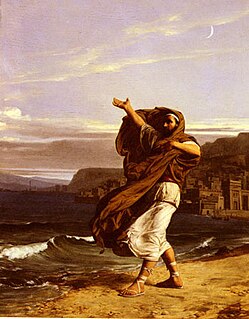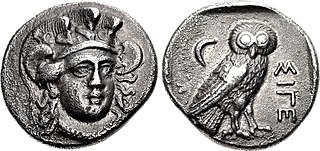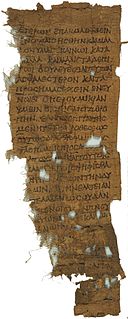This page is based on this
Wikipedia article Text is available under the
CC BY-SA 4.0 license; additional terms may apply.
Images, videos and audio are available under their respective licenses.

Demosthenes was a Greek statesman and orator of ancient Athens. His orations constitute a significant expression of contemporary Athenian intellectual prowess and provide an insight into the politics and culture of ancient Greece during the 4th century BC. Demosthenes learned rhetoric by studying the speeches of previous great orators. He delivered his first judicial speeches at the age of 20, in which he argued effectively to gain from his guardians what was left of his inheritance. For a time, Demosthenes made his living as a professional speech-writer (logographer) and a lawyer, writing speeches for use in private legal suits.
John Taylor, English classical scholar, was born at Shrewsbury in Shropshire.

The ten Attic orators were considered the greatest orators and logographers of the classical era. They are included in the "Canon of Ten", which probably originated in Alexandria. A.E. Douglas has argued, however, that it was not until the second century AD that the canon took on the form that is recognised today.

John Freind, FRS, was an English physician.

Chares of Athens and was an Athenian general, who for a number of years was a key commander of Athenian forces.
Aristophon was native of the deme of Azenia in Attica. He lived about and after the end of the Peloponnesian War. In 412 BC, Aristophon, Laespodias, and Melesias were sent to Sparta as ambassadors by the oligarchical government of the Four Hundred.
Aeschines of Sphettus or Aeschines Socraticus, son of Lysanias, of the deme Sphettus of Athens, was a philosopher who in his youth a follower of Socrates. Historians call him Aeschines Socraticus—"the Socratic Aeschines"—to distinguish him from the more historically influential Athenian orator also named Aeschines. His name is sometimes but now rarely written as Aischines or Æschines

On the Crown is the most famous judicial oration of the prominent Athenian statesman and orator Demosthenes, delivered in 330 BC.
Demosthenes's Funeral Oration was delivered between August and September of 338 BC, just after the Battle of Chaeronea. It constitutes along with the Erotic Essay the two epideictic orations of the prominent Athenian statesman and orator, which are still existent.
Against Meidias is one of the most famous judicial orations of the prominent Athenian statesman and orator Demosthenes.
On the False Embassy is the name of two famous judicial orations, both delivered in 343 BC by the prominent Athenian statesmen and fierce opponents, Demosthenes and Aeschines.

Ctesiphon was an orator in Athens during the reign of Alexander the Great. He is best known for sparking the controversy that led to Demosthenes' speech On the Crown and Aeschines' speech Against Ctesiphon.
De Optimo Genere Oratorum, "On the Best Kind of Orators", is a work from Marcus Tullius Cicero written in 46 BCE between two of his other works, Brutus and the Orator ad M. Brutum. Cicero attempts to explain why his view of oratorical style reflects true Atticism and is better than that of the Roman Atticists "who would confine the orator to the simplicity and artlessness of the early Attic orators."
In literature, the tritagonist or tertiary main character is the third most important character of a narrative, after the protagonist and deuteragonist. In ancient Greek drama, the tritagonist was the third member of the acting troupe.
An orator, or oratist, is a public speaker, especially one who is eloquent or skilled.





